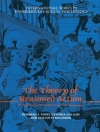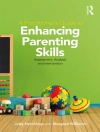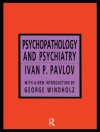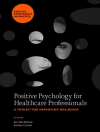Over decades, noted authority Jonathan S. Abramowitz has helped thousands of people use the best science-based strategies to overcome obsessive–compulsive disorder (OCD). But if you have OCD–whether in treatment or not–you know that some days are harder than others. If you are looking for empathic support to navigate the rough patches when OCD disrupts your life, this book is for you! Get step-by-step ideas and downloadable practical tools for coping with lingering obsessional thoughts and doubts, riding out compulsive urges, and staying on track at work or in school. Dr. Abramowitz offers tips for navigating relationships and solving problems with family members, friends, and romantic partners. In short, engaging chapters, this book helps you cultivate resilience, replace self-criticism with self-compassion, and build the life you want–even with OCD.
Innehållsförteckning
Introduction
1. Charting a Path to Living Well
2. Replacing Shame and Guilt with Self-Compassion
3. Quieting Obsessional Fears and Doubts
4. Riding Out Compulsive Urges
5. Taking Control of Your Time
6. Finding a Balance between Privacy and Disclosure
7. Getting the Healthy Support You Deserve
8. Maintaining Family Harmony
9. Thriving in Romantic Relationships
10. Navigating Work and School
11. Surviving a Crisis
12. Rethinking Treatment
Index
Om författaren
Jonathan S. Abramowitz, Ph D, ABPP, is Professor of Psychology and Neuroscience and Research Professor of Psychiatry at the University of North Carolina (UNC) at Chapel Hill. He is also Director of the UNC Clinical Psychology Ph D Training Program. Dr. Abramowitz conducts research on OCD and other anxiety-related disorders and has published over 20 books and 300 peer-reviewed research articles and book chapters. He is Founding Editor-in-Chief of the
Journal of Obsessive–Compulsive and Related Disorders and serves on the editorial boards of several other scientific journals. Dr. Abramowitz is a scientific and clinical advisory board member for the International OCD Foundation and a past president of the Association for Behavioral and Cognitive Therapies. He has received numerous awards for his contributions to the fields of OCD and clinical psychology and for his mentorship of students and trainees. His books include
Living Well with OCD,
The Family Guide to Getting Over OCD, and
Getting Over OCD, Second Edition (for general readers), and
Exposure Therapy for Anxiety, Second Edition (for mental health professionals).












